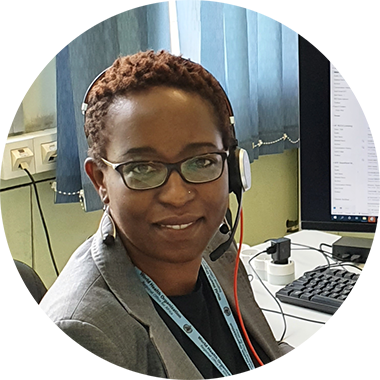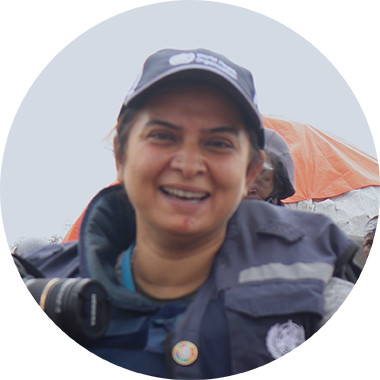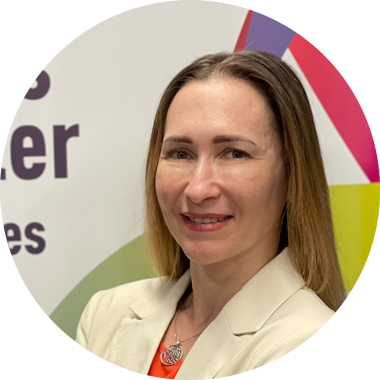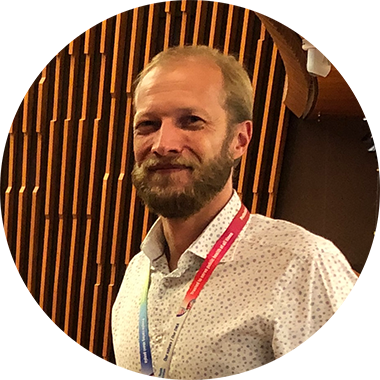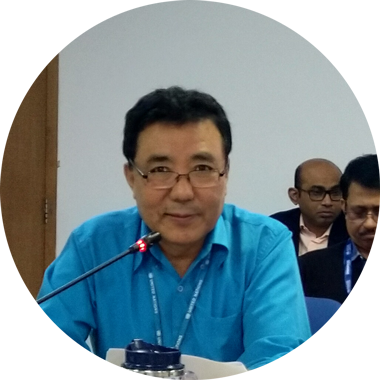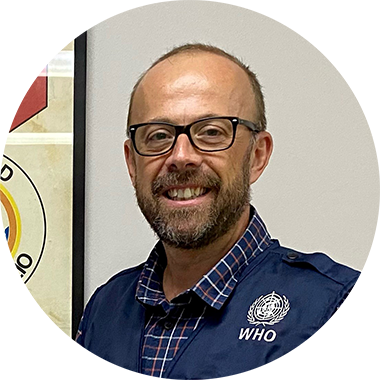
Leghos Kakule Kaghoma
Administrative Assistant - Mbandaka Sub-office,
the Democratic Republic of the Congo
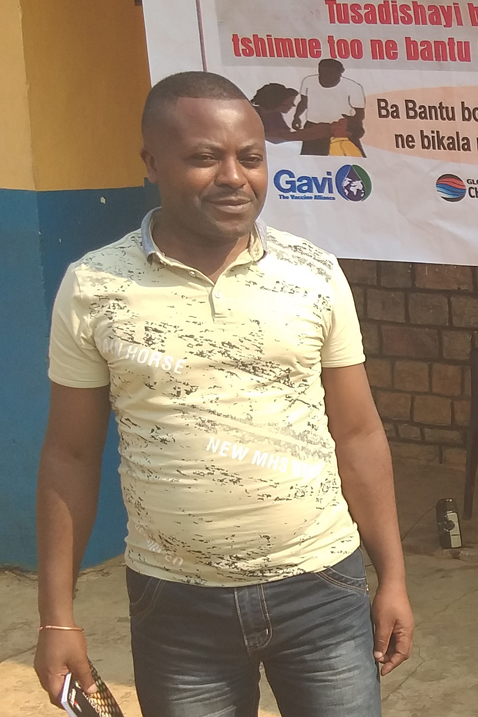
Leghos Kakule Kaghoma is an administrative assistant in the WHO sub-office in Mbandaka, a town at the confluence of the Congo and Ruki Rivers in Équateur Province in the west of the Democratic Republic of the Congo. His responsibilities are to provide support to the staff and programmes. Most of the time this is a small sub-office headed by a coordinator with only a surveillance officer, Leghos and a driver. It used to be a WHO antenna office, but as the country has declared free of wild polio virus circulation, its needs were assessed and the antenna offices were repurposed to cover all diseases. The Mbandaka sub-office is part of the Regional Office for Africa and is responsible for disease surveillance in a vast terrain of rivers, mountains and jungle, home to large rural and urban populations. The area is dotted with remote communities, many of which have been the scene of conflict. Depending on the season, travel is mostly by river and can be complicated at the best of times. Leghos came back to Mbandaka after working in another WHO antenna office 450 km up the Congo River in Lisala, where he had started his career with WHO as an Administrative Secretary. He became well versed in WHO financial rules and systems while providing support in finance administration before he moved back to Mbandaka and eventually took on a bigger role as an administrative assistant.
The surveillance sub-office staff are on constant alert for outbreaks and when they occur the office swells to bring in more experts. He coordinates their contracts, transport and logistics to enable their crucial work of ensuring that outbreaks are contained and minimized.
Leghos started his life over 1200 km to the east in a rural setting close to the Ugandan border, where he grew up with his family and would walk several kilometres each day to attend school. His father was a surveyor, and initially Leghos thought he might study in the construction industry, but after secondary school he went a few hundred kilometres south to attend university in Goma. DRC’s infrastructure and population have suffered from the many conflicts within and around its borders, and Leghos’s family suffered with them. Orphaned, he left Goma to follow his uncle to Kinshasa, who worked for a UN agency. Unfortunately, travelling through a conflict zone was not an option, so Leghos went east through Uganda to Kenya and flew back west to Kinshasa. Although Leghos had some experience in software training in IT, and with his uncle’s encouragement had included finance in his studies, he discovered that Kinshasa was a difficult place to find work or fund more studies. He continued his journey and went north to Mbandaka, where he eventually found work with an NGO. Together with his uncle’s encouragement, this work opened his eyes to the UN’s mandate and how they have been helping people displaced by the conflicts and easing the suffering across the country.
Leghos lost his mother to illness and became interested in using his skills to help his country’s fight against disease. He was grateful to learn that he could use his financial expertise and IT skills to work in public health. In 2004 he applied to work for WHO and arrived in the Lisala antenna office to take up a job as Administrative Secretary supporting the polio eradication effort. By the time he arrived back in Mbandaka he had been on a journey of nearly 5000 km from his family home near Butembo. “I have travelled a long way and learnt a lot, and I continue to learn at WHO about our mandate and how it is helping my own country and its population,” he says.
“Sometimes we go from our 4 regular staff to having people arrive daily during outbreaks. ...They are all different nationalities, races and cultures and together we have common goals and a team spirit, like a family.”
Leghos must ensure that whatever the season or difficulties on the ground, everything is correctly administered, paid for and coordinated. “Sometimes we go from our 4 regular staff to having people arrive daily during outbreaks. It is important that everyone can immediately work, transport is secure and organized and people have a place to stay, which can all be challenging in such remote areas,” he explains. “They are all different nationalities, races and cultures and together we have common goals and a team spirit, like a family.” He also works to make sure every transaction is auditable and entered in WHO’s systems for donor and financial reporting later on, even with patchy internet access.
WHO has built trust in the country and in the region, and it provides credibility through evidence-based reporting which can discredit fake news and rumours. Leghos recalls how dangerous it was in June 2020 when it appeared that the population of Mbandaka did not believe in the presence of Ebola in the town, even after the virus declaration was made in Équateur Province. Several local NGOs and partner agencies came to the WHO sub-office to understand, discuss and affirm the information. “This purged any doubts and put everyone concerned on the same page,” he recalls.
Reflecting on where he is in his life, Leghos is glad he followed his uncle’s guidance in studies and career path. “I’m proud to be part of the WHO family; it is truly an inspirational organization to work for. Here I feel that I don’t just do a job; I contribute to WHO’s mission to serve the most vulnerable and contribute to advancing the Sustainable Development Goals.”


